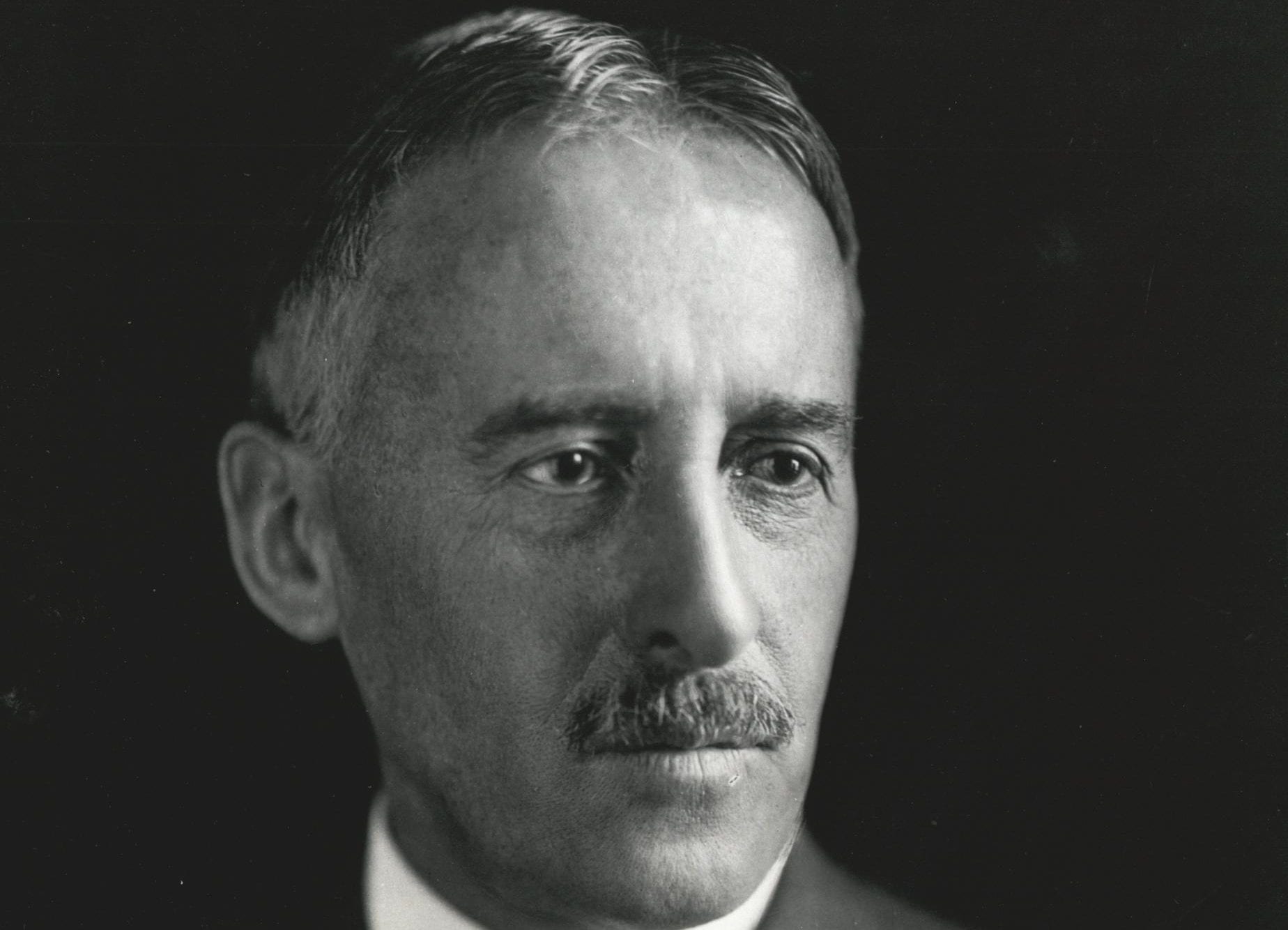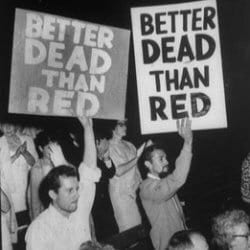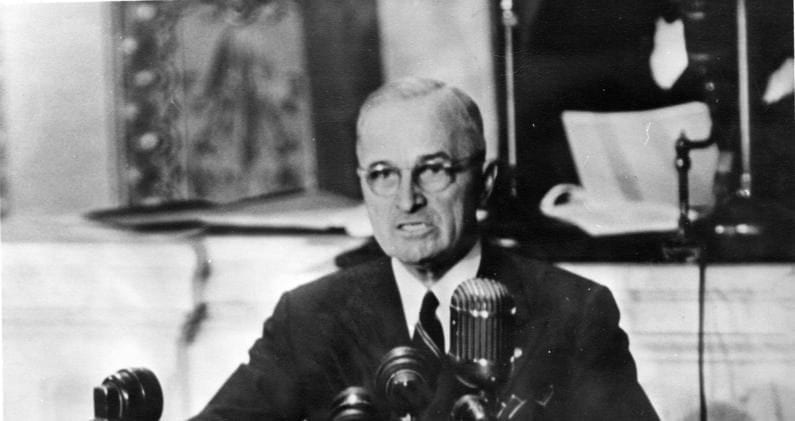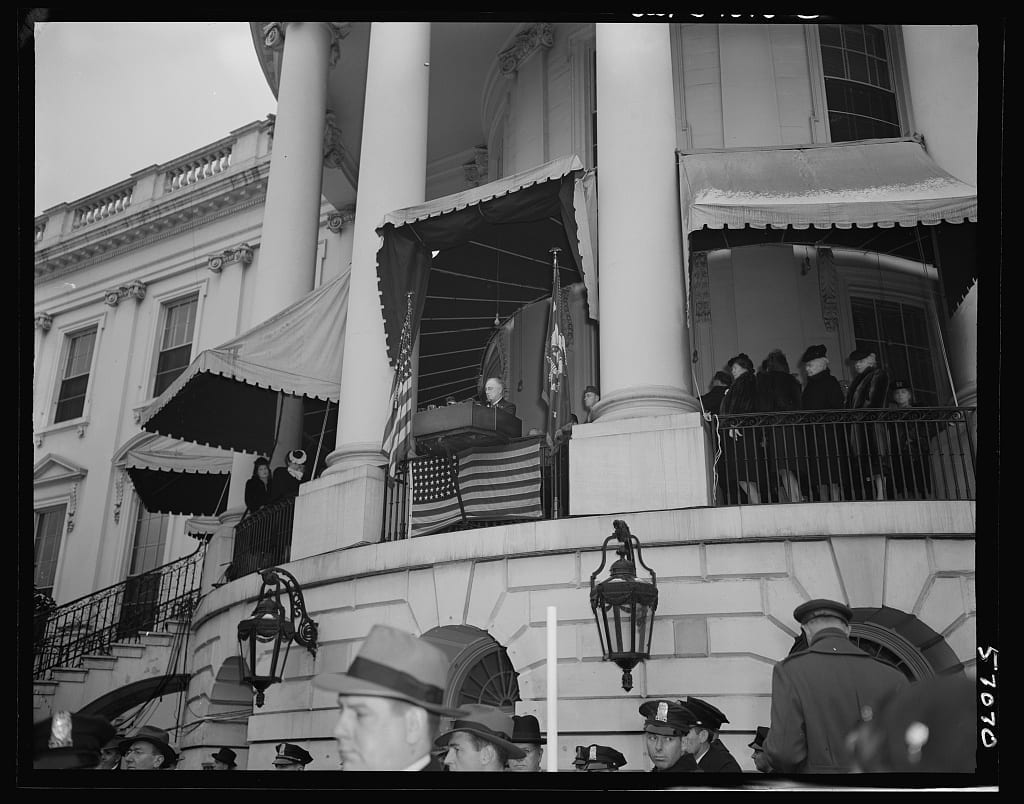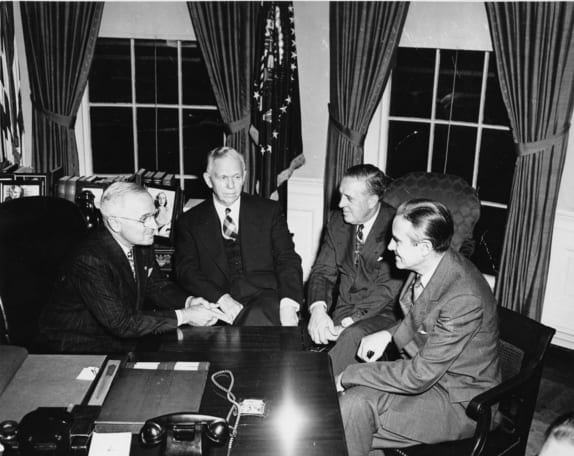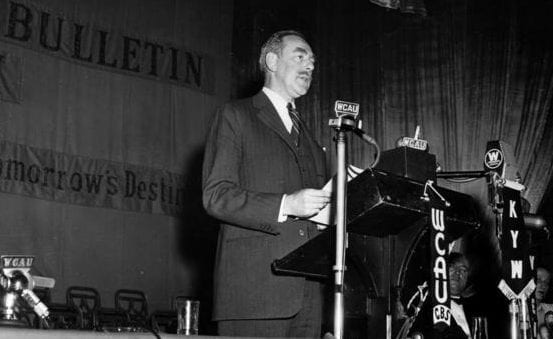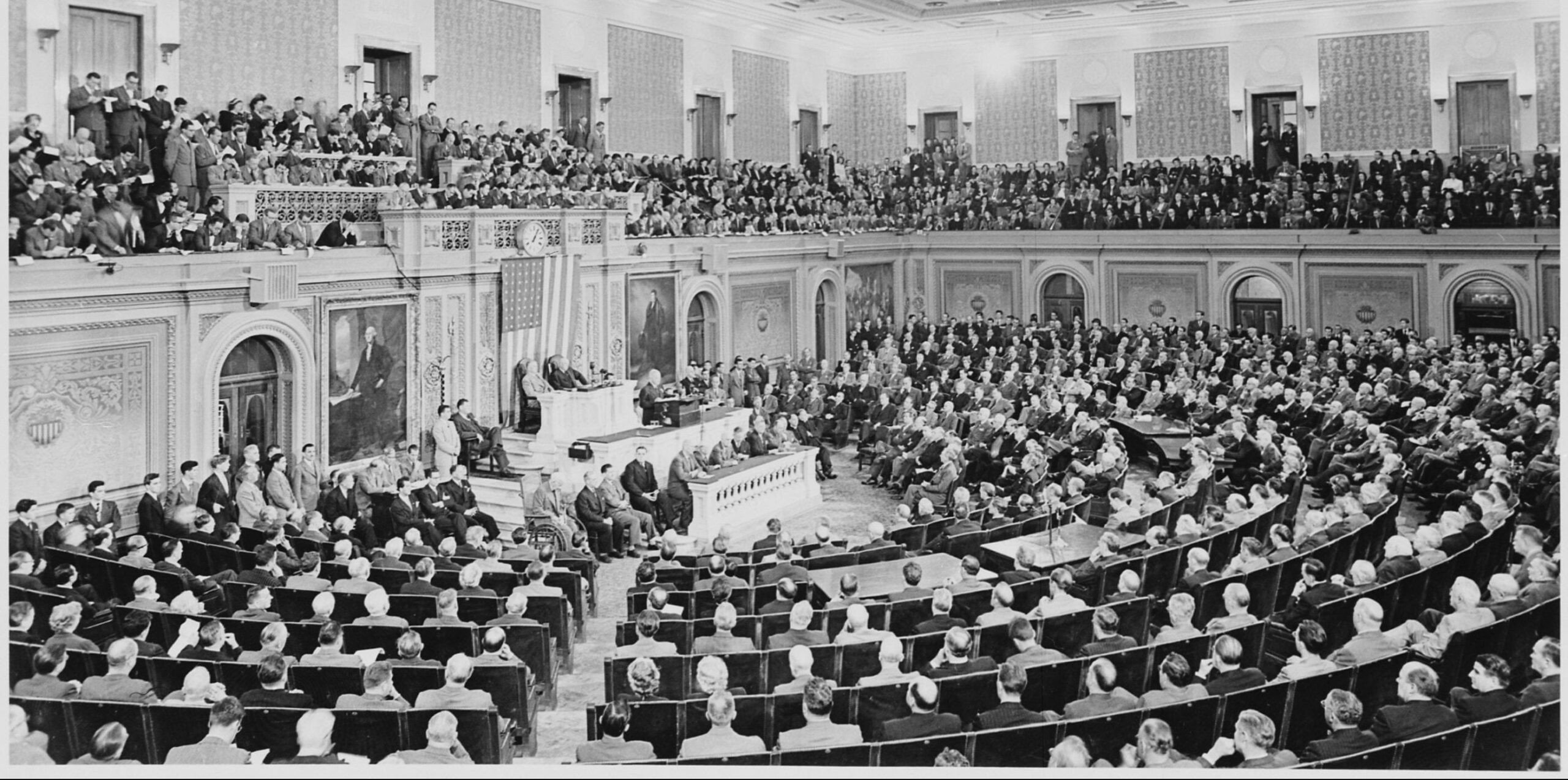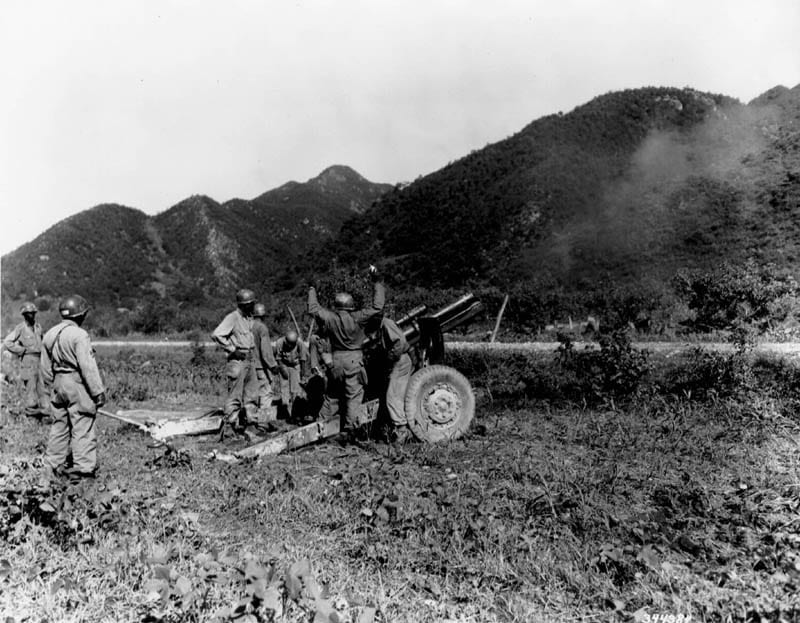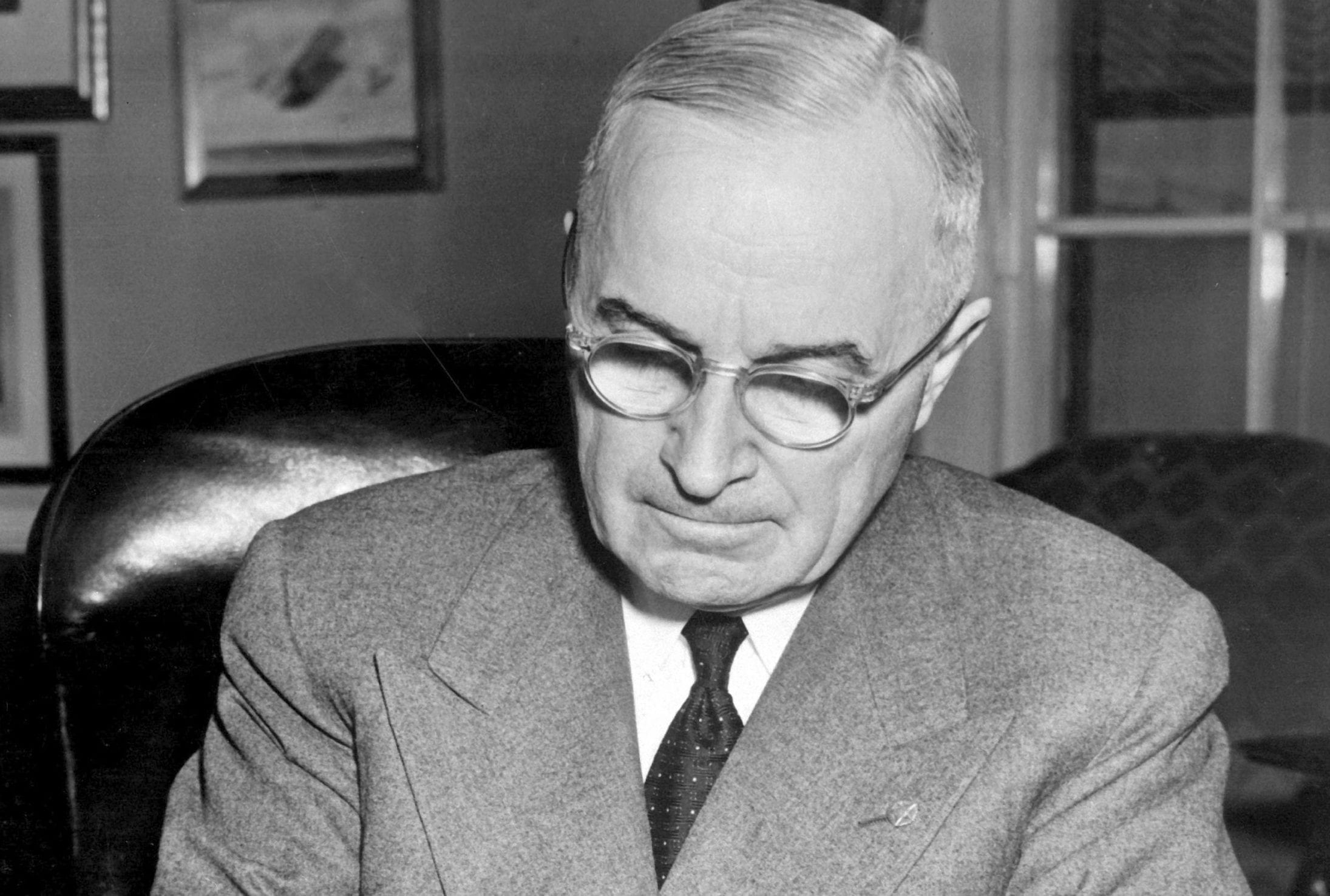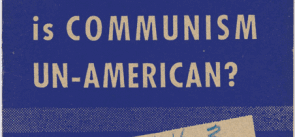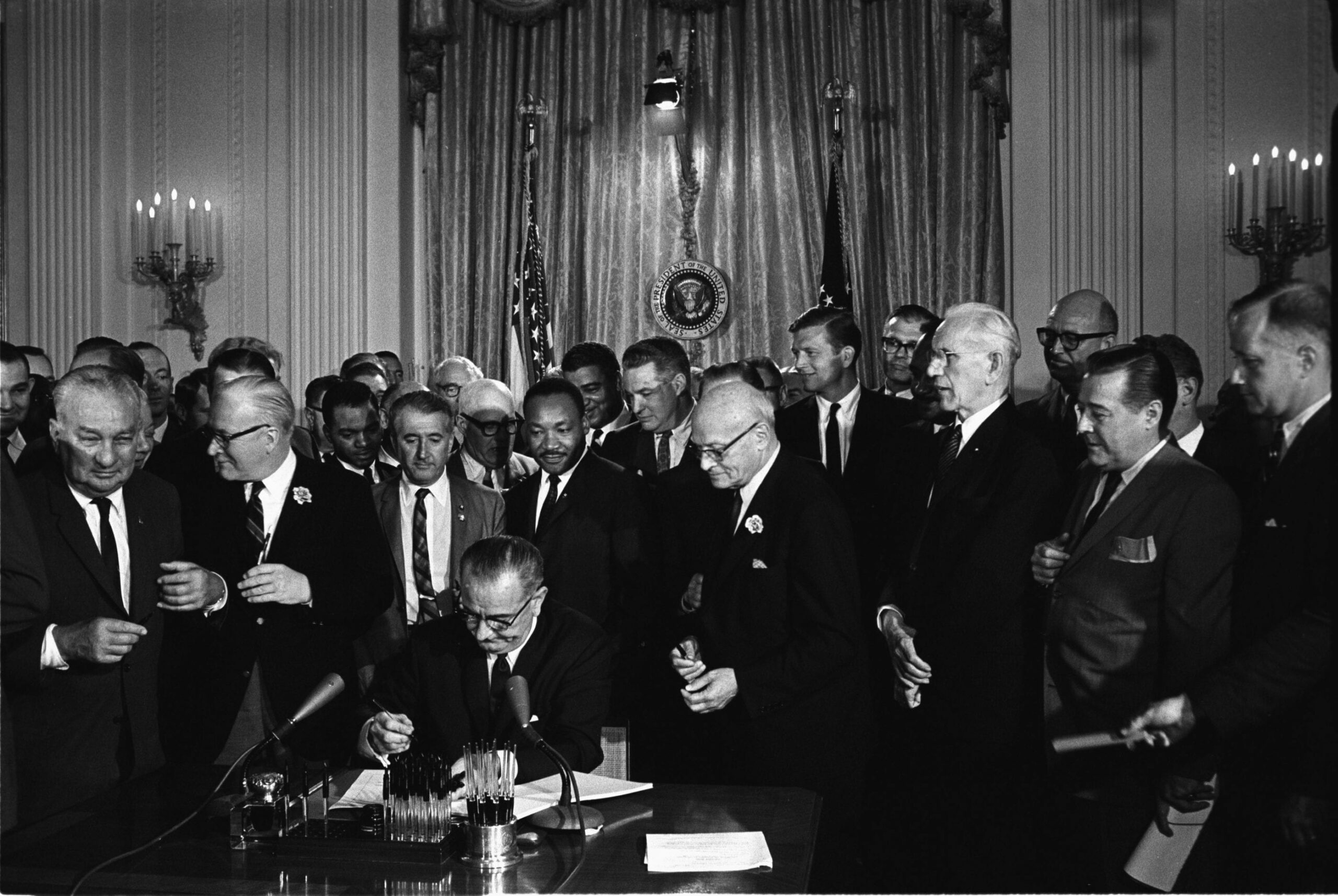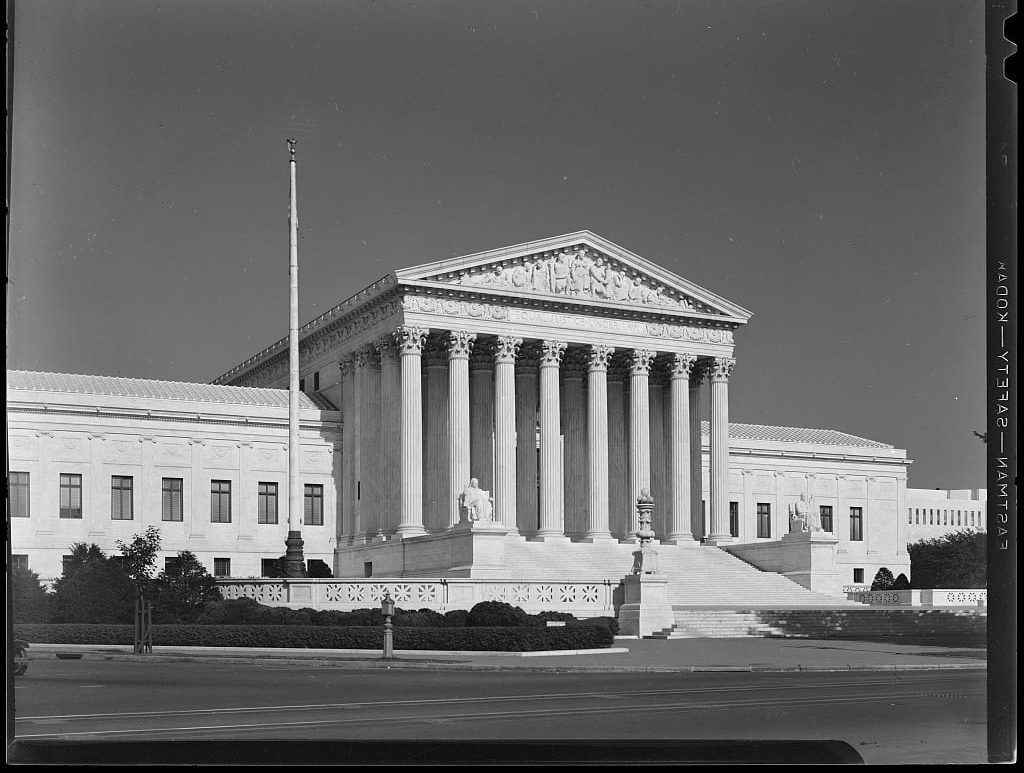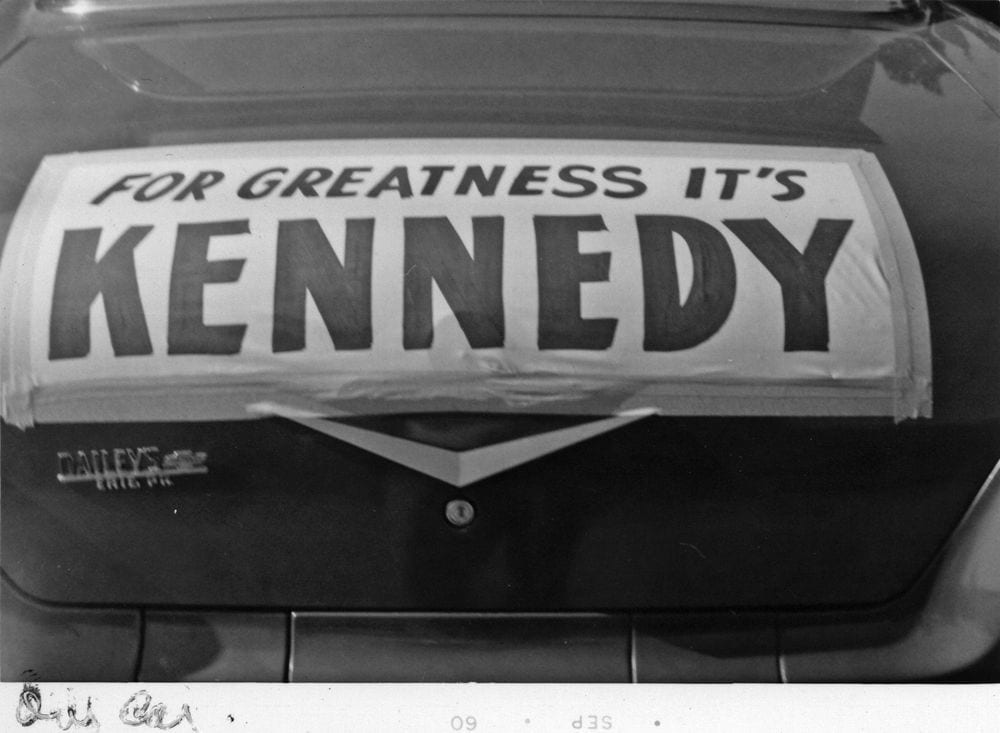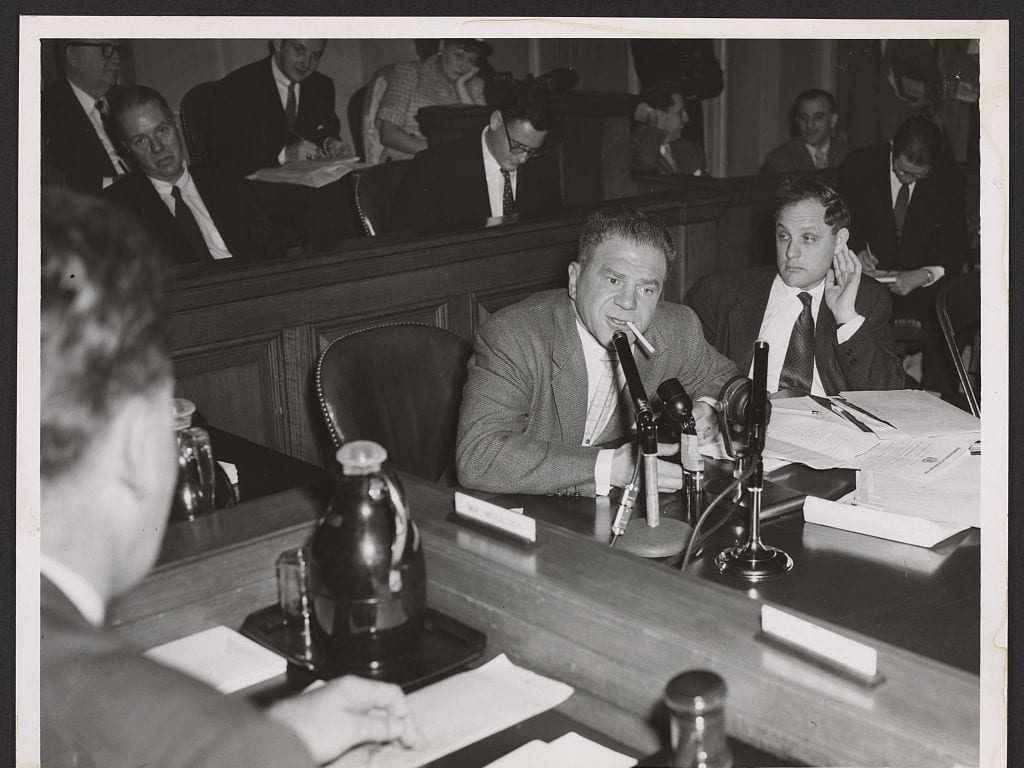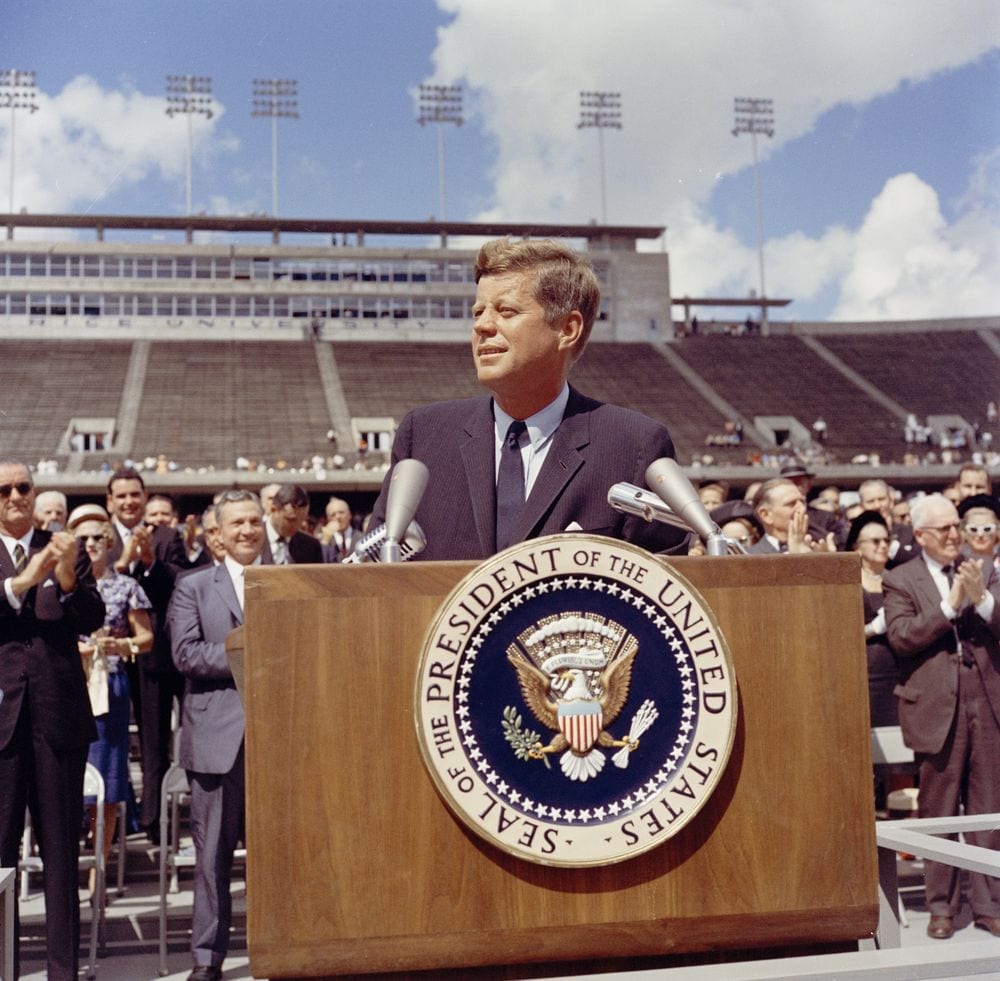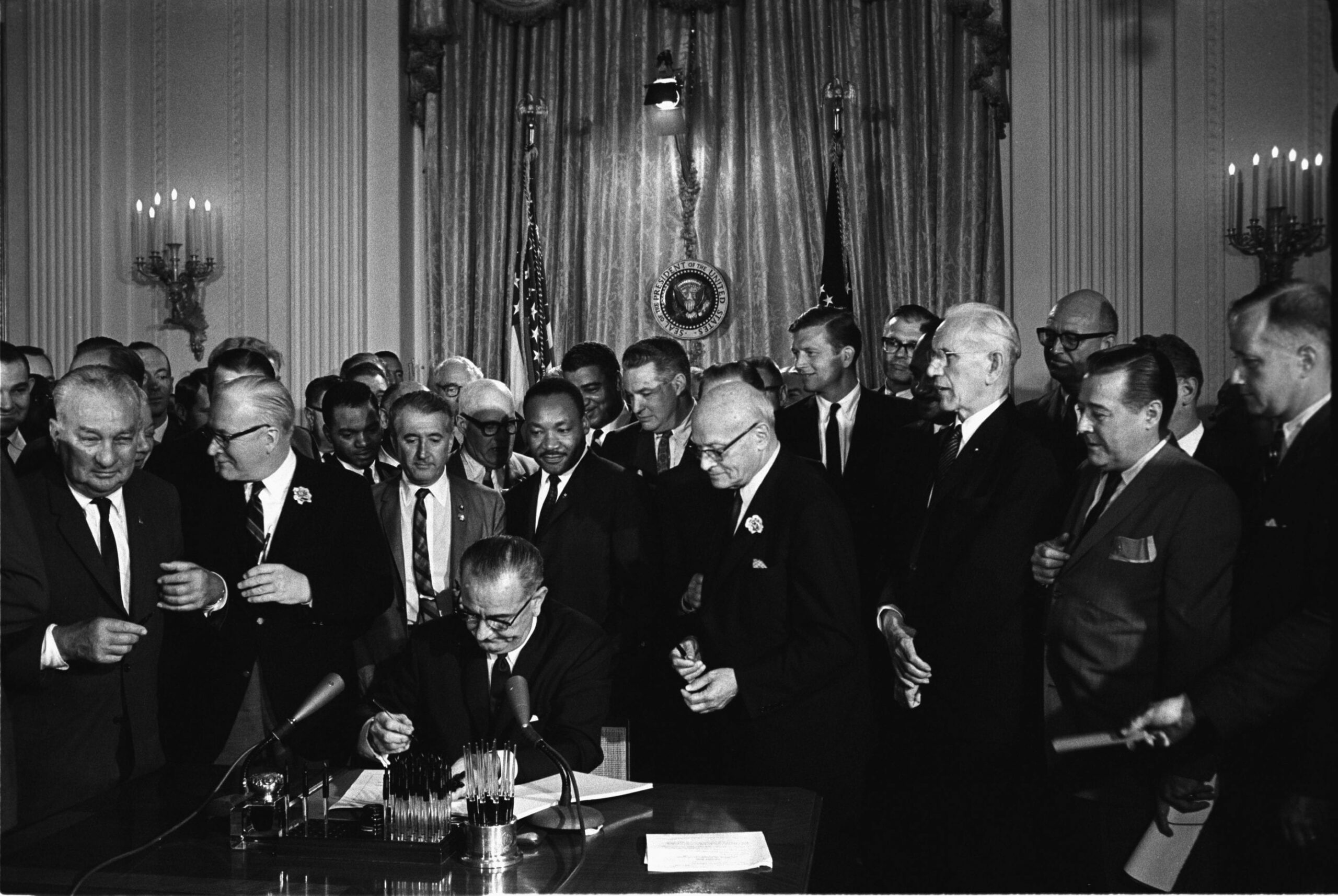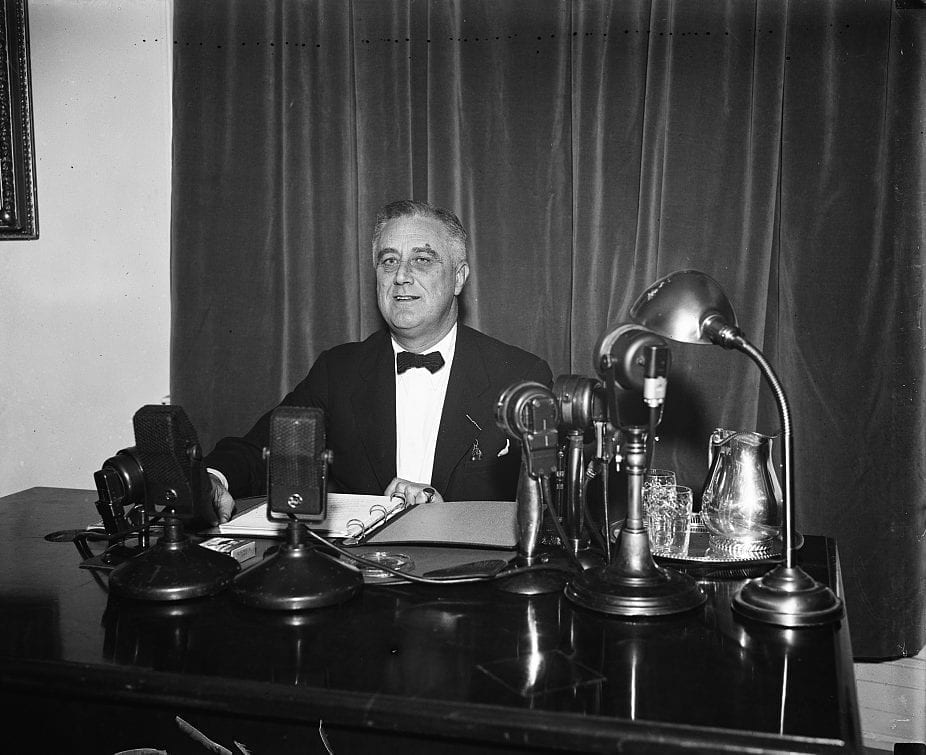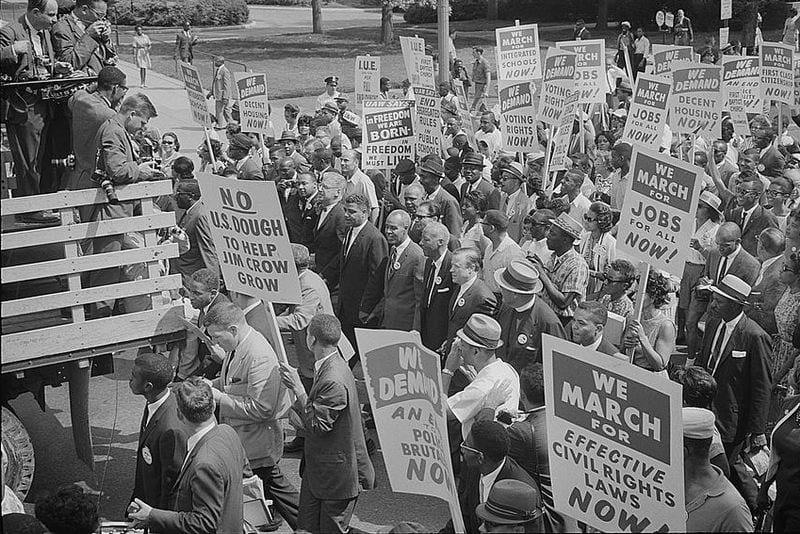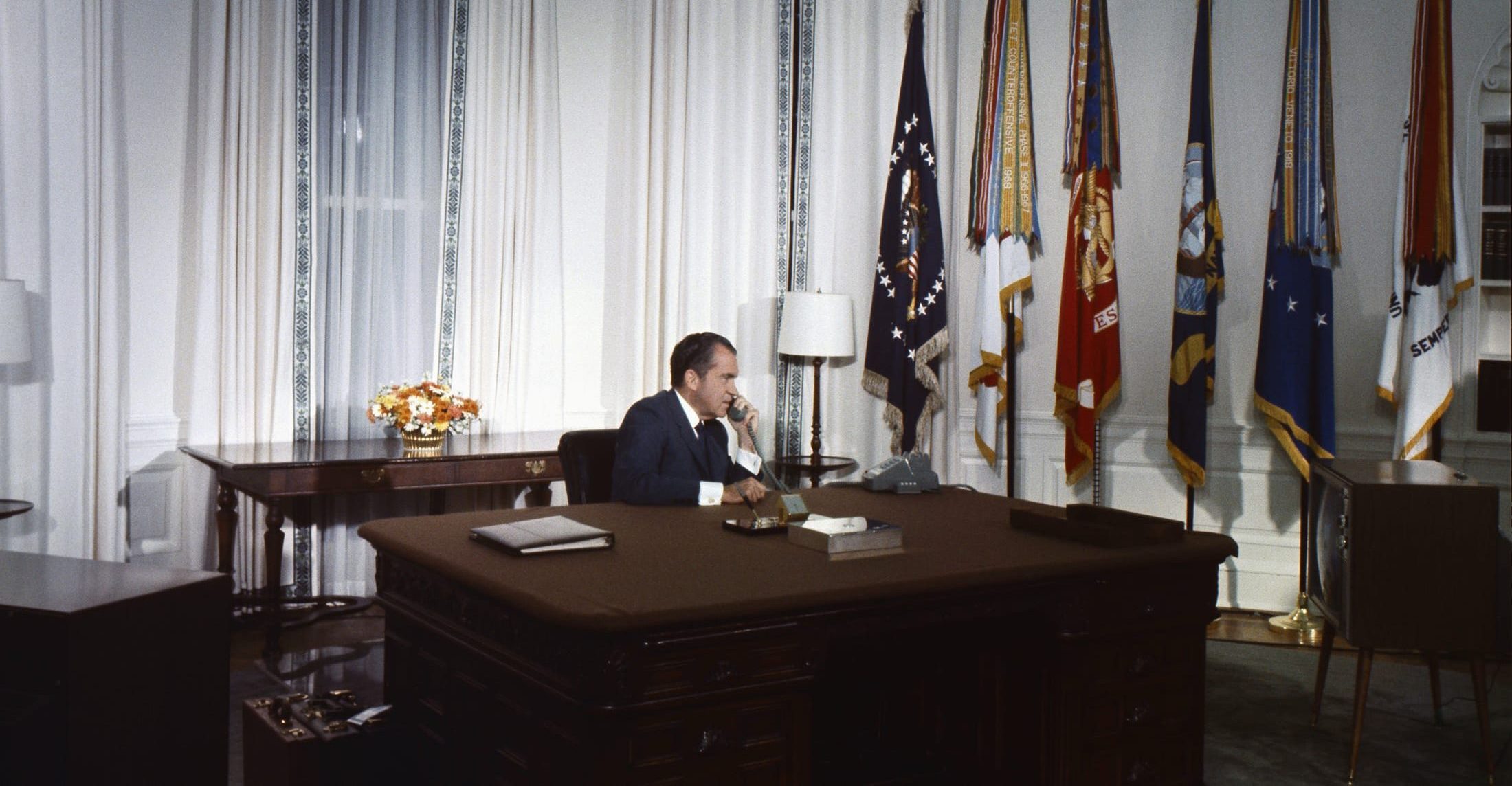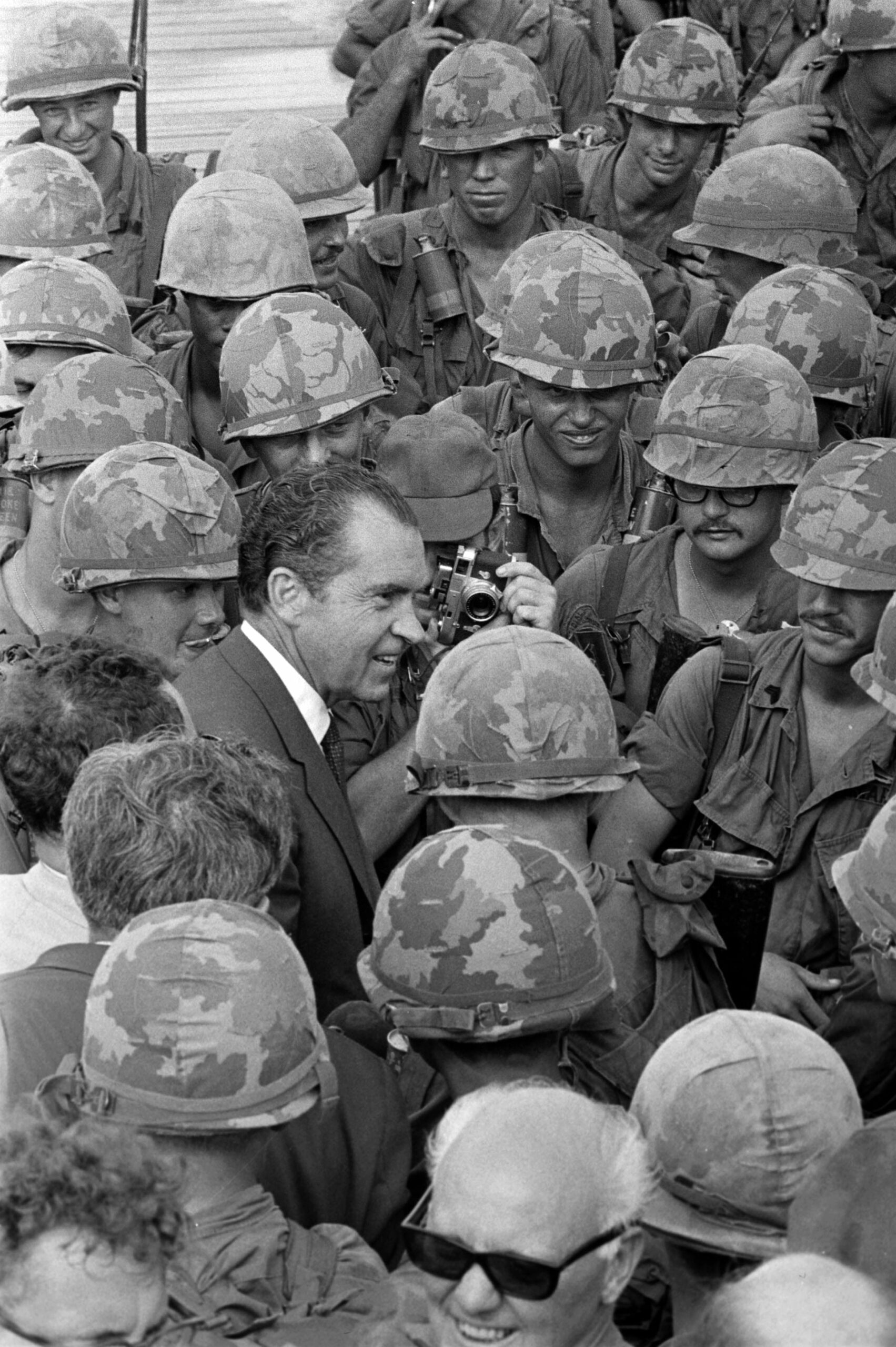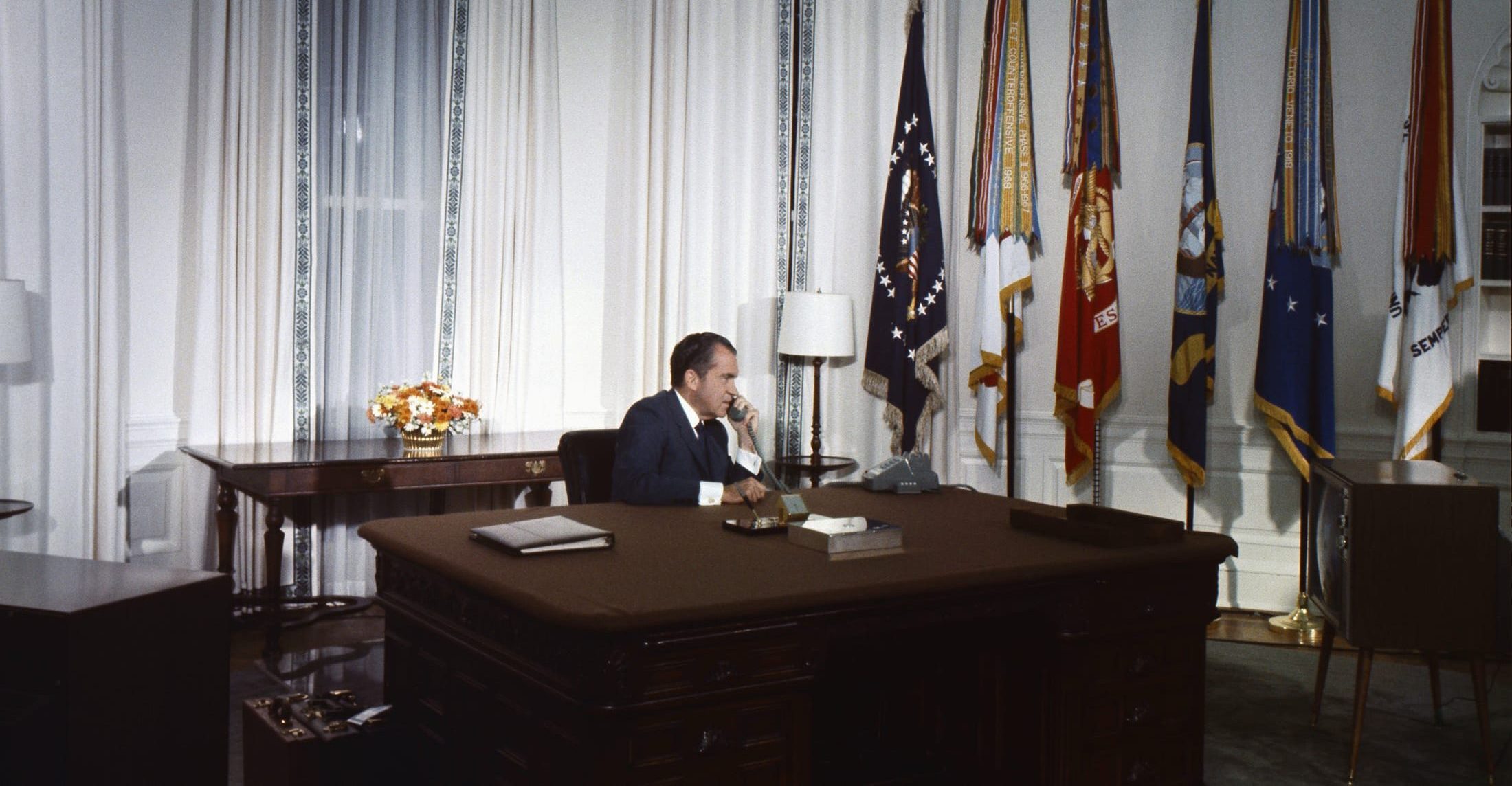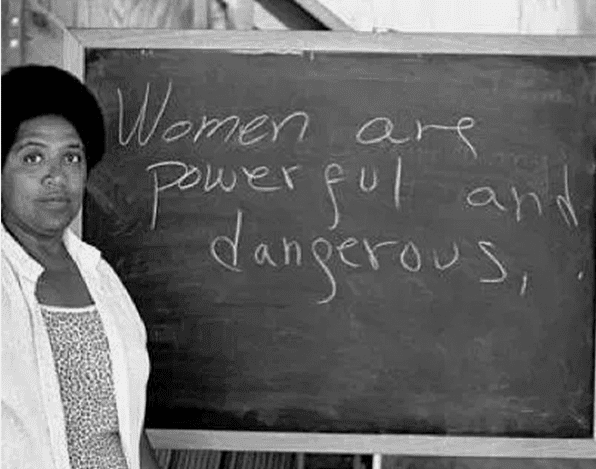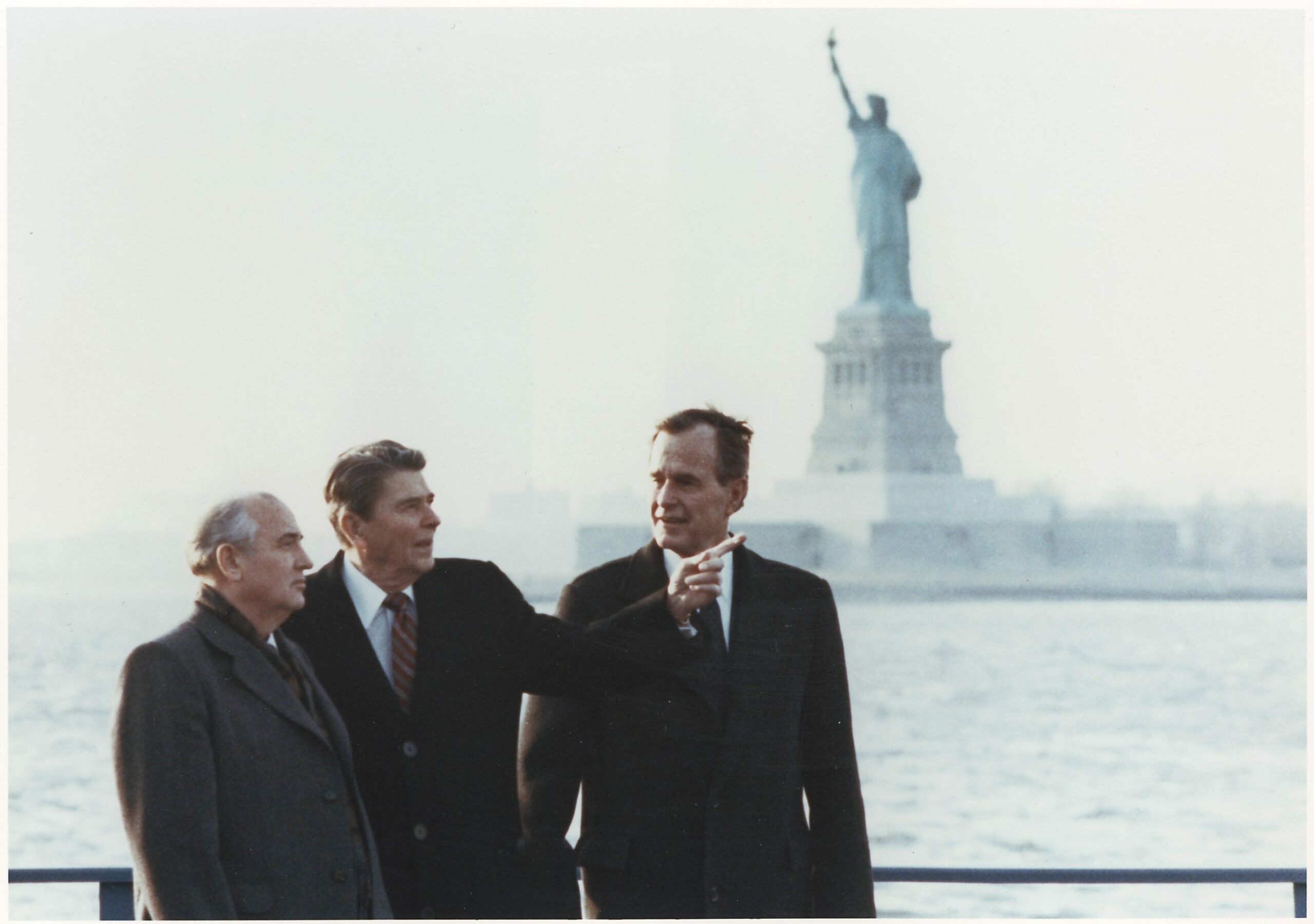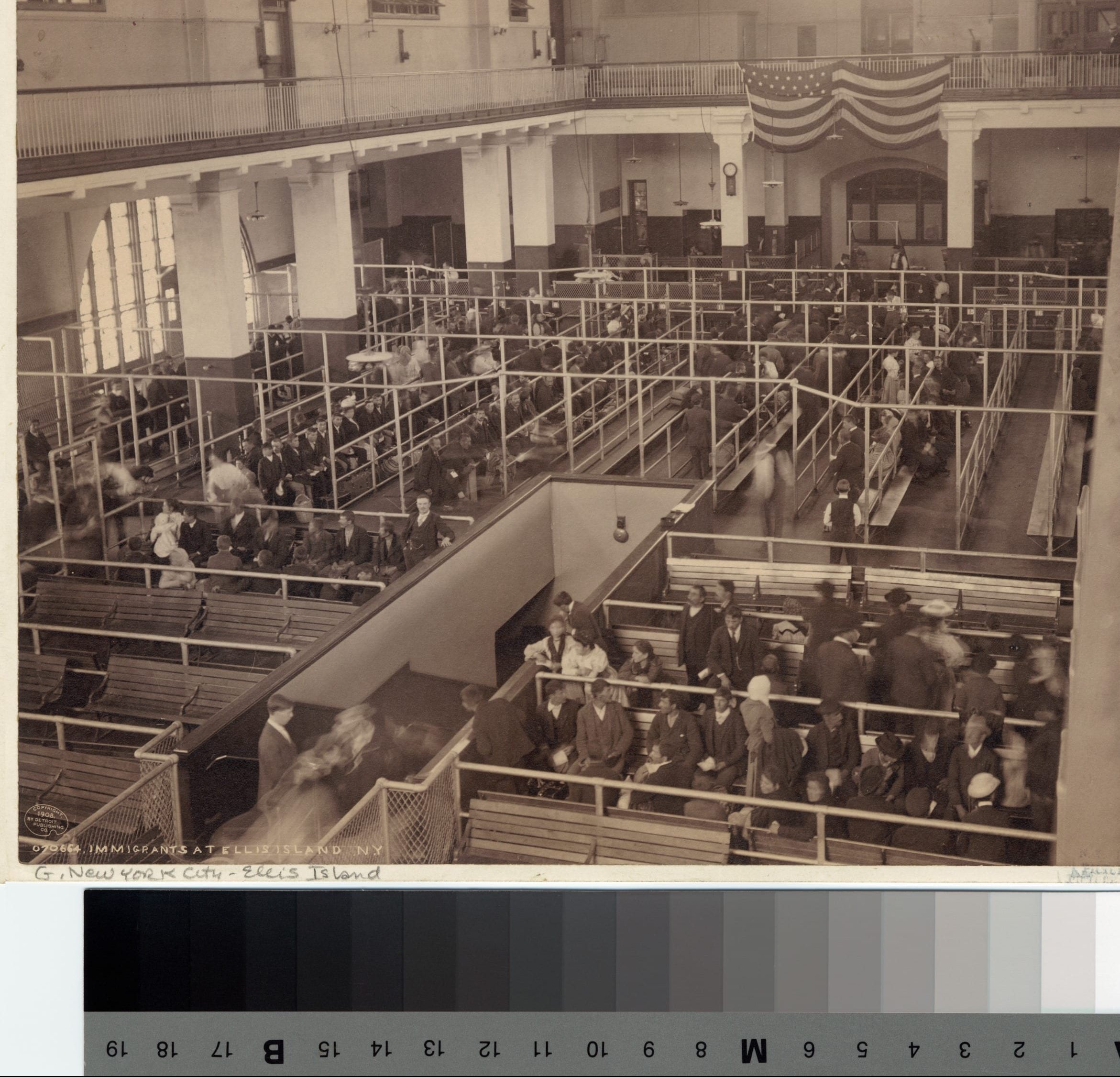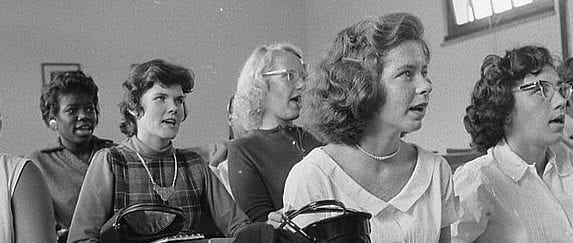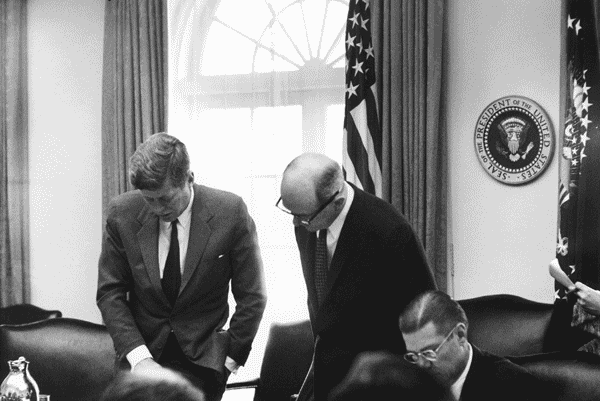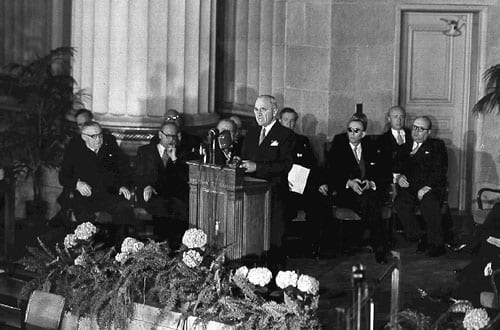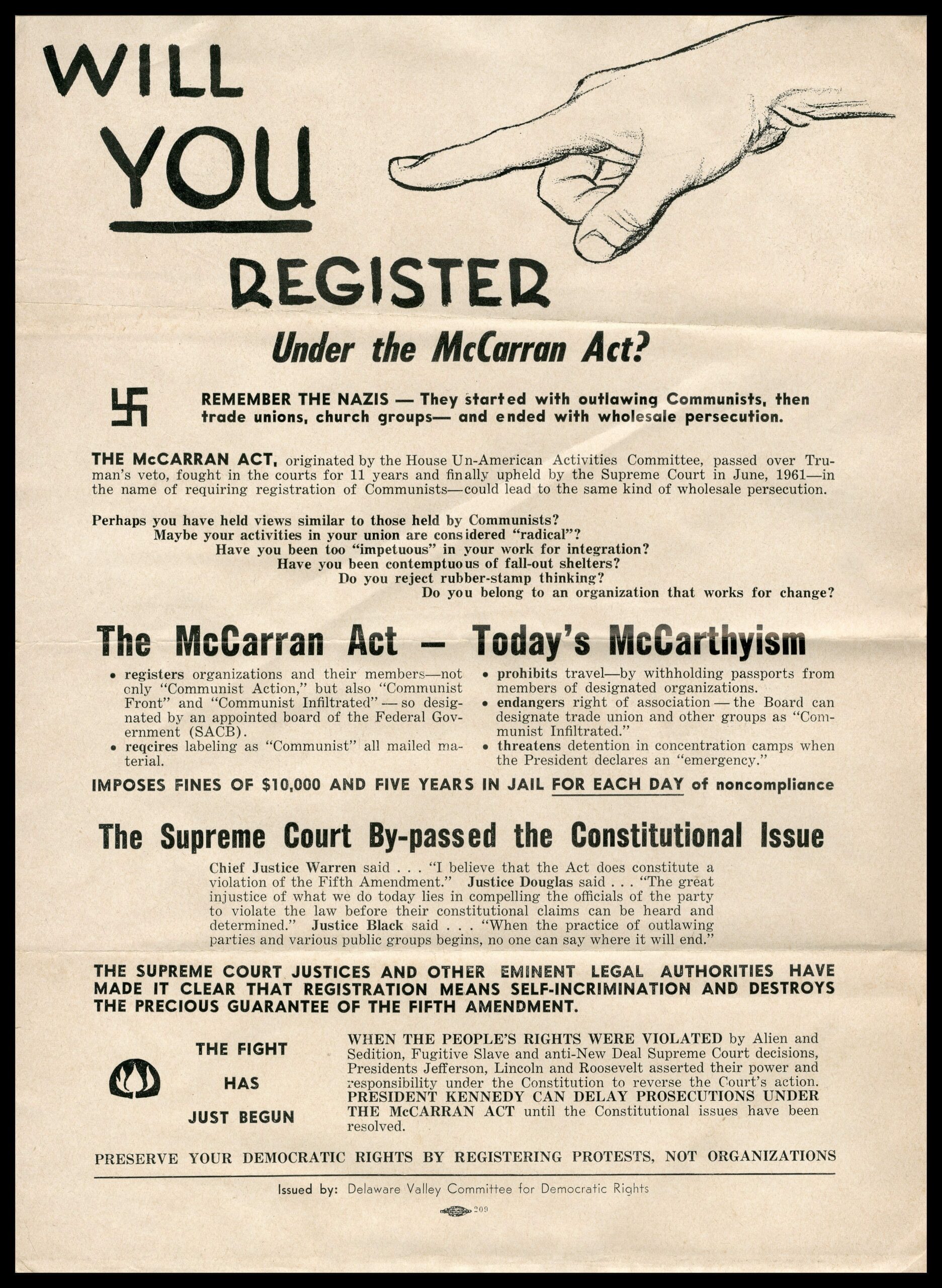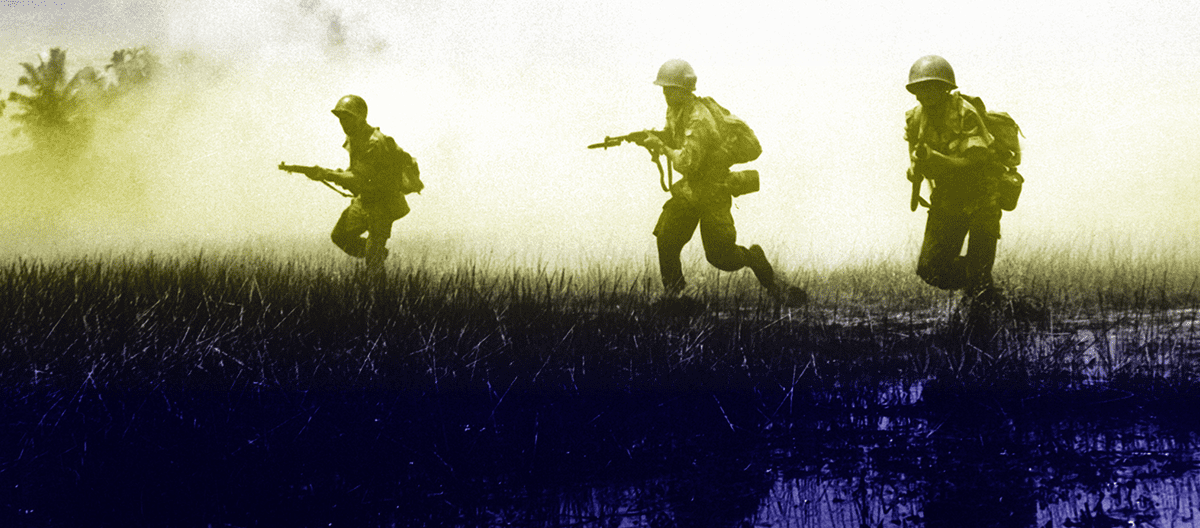


No related resources
Introduction
Lyndon Baines Johnson (1908–1973) was the thirty-sixth president of the United States. Born in Stonewall, Texas, he graduated from Southwest Texas Teachers College (now Texas State University) in 1930 and the next year went to work in Washington, DC, as a congressional aide. His career as a public official began in 1937 when he was elected to the House of Representatives. In 1948 he was elected to the U.S. Senate. He served as a powerful Senate majority leader beginning in 1954, then as vice president under John F. Kennedy. He assumed the presidency when Kennedy was assassinated in November 1963, and the following year won a landslide election for a full term of his own.
The Johnson administration pursued an enormously ambitious domestic policy agenda, exemplifying a confidence—characteristic of the Progressive tradition—in the power of applied social science to transform America to the good. This was particularly true in the area of civil rights. Notable during his Senate career as one of the few southern members who declined to sign the Southern Manifesto, Johnson played a vital role in the enactment of the Civil Rights Act of 1964 and the Voting Rights Act of 1965. In the present selection Johnson eagerly anticipates passage of the voting rights bill but also, looking beyond the cause of equal rights under law, commits his administration to a far-reaching effort to alleviate poverty and promote equality in socioeconomic outcomes.
Source: Lyndon B. Johnson, Commencement Address at Howard University: “To Fulfill These Rights”; available at Gerhard Peters and John T. Woolley, The American Presidency Project, https://www.presidency.ucsb.edu/node/241312.
I am delighted at the chance to speak at this important and this historic institution. Howard has long been an outstanding center for the education of Negro Americans. Its students are of every race and color and they come from many countries of the world. It is truly a working example of democratic excellence.
Our earth is the home of revolution. In every corner of every continent men charged with hope contend with ancient ways in the pursuit of justice. They reach for the newest of weapons to realize the oldest of dreams, that each may walk in freedom and pride, stretching his talents, enjoying the fruits of the earth. . . .
In our time change has come to this nation, too. The American Negro, acting with impressive restraint, has peacefully protested and marched, entered the courtrooms and the seats of government, demanding a justice that has long been denied. The voice of the Negro was the call to action. But it is a tribute to America that, once aroused, the courts and the Congress, the president and most of the people, have been the allies of progress.
Thus we have seen the high court of the country declare that discrimination based on race was repugnant to the Constitution, and therefore void. We have seen in 1957, and 1960, and again in 1964, the first civil rights legislation in this nation in almost an entire century.
As majority leader of the United States Senate I helped to guide two of these bills through the Senate. And as your president I was proud to sign the third. And now very soon we will have the fourth—a new law guaranteeing every American the right to vote.
No act of my entire administration will give me greater satisfaction than the day when my signature makes this bill, too, the law of this land.
The voting rights bill will be the latest, and among the most important, in a long series of victories. But this victory—as Winston Churchill said of another triumph for freedom—“is not the end. It is not even the beginning of the end. But it is, perhaps, the end of the beginning.”
That beginning is freedom; and the barriers to that freedom are tumbling down. Freedom is the right to share, share fully and equally, in American society—to vote, to hold a job, to enter a public place, to go to school. It is the right to be treated in every part of our national life as a person equal in dignity and promise to all others.
But freedom is not enough. You do not wipe away the scars of centuries by saying: Now you are free to go where you want, and do as you desire, and choose the leaders you please.
You do not take a person who, for years, has been hobbled by chains and liberate him, bring him up to the starting line of a race and then say, “you are free to compete with all the others,” and still justly believe that you have been completely fair.
Thus it is not enough just to open the gates of opportunity. All our citizens must have the ability to walk through those gates.
This is the next and the more profound stage of the battle for civil rights. We seek not just freedom but opportunity. We seek not just legal equity but human ability, not just equality as a right and a theory but equality as a fact and equality as a result. . . .
To this end equal opportunity is essential, but not enough, not enough. Men and women of all races are born with the same range of abilities. But ability is not just the product of birth. Ability is stretched or stunted by the family that you live with, and the neighborhood you live in—by the school you go to and the poverty or the richness of your surroundings. It is the product of a hundred unseen forces playing upon the little infant, the child, and finally the man. . . .
Of course Negro Americans as well as white Americans have shared in our rising national abundance. But the harsh fact of the matter is that in the battle for true equality too many—far too many—are losing ground every day.
We are not completely sure why this is. We know the causes are complex and subtle. But we do know the two broad basic reasons. And we do know that we have to act.
First, Negroes are trapped—as many whites are trapped—in inherited, gateless poverty. They lack training and skills. They are shut in, in slums, without decent medical care. Private and public poverty combine to cripple their capacities.
We are trying to attack these evils through our poverty program, through our education program, through our medical care and our other health programs, and a dozen more of the Great Society programs that are aimed at the root causes of this poverty.
We will increase, and we will accelerate, and we will broaden this attack in years to come until this most enduring of foes finally yields to our unyielding will.
But there is a second cause—much more difficult to explain, more deeply grounded, more desperate in its force. It is the devastating heritage of long years of slavery; and a century of oppression, hatred, and injustice.
For Negro poverty is not white poverty. Many of its causes and many of its cures are the same. But there are differences—deep, corrosive, obstinate differences—radiating painful roots into the community, and into the family, and the nature of the individual.
These differences are not racial differences. They are solely and simply the consequence of ancient brutality, past injustice, and present prejudice. They are anguishing to observe. For the Negro they are a constant reminder of oppression. For the white they are a constant reminder of guilt. But they must be faced and they must be dealt with and they must be overcome if we are ever to reach the time when the only difference between Negroes and whites is the color of their skin. . . .
Much of the Negro community is buried under a blanket of history and circumstance. It is not a lasting solution to lift just one corner of that blanket. We must stand on all sides and we must raise the entire cover if we are to liberate our fellow citizens.
One of the differences is the increased concentration of Negroes in our cities. More than 73 percent of all Negroes live in urban areas compared with less than 70 percent of the whites. Most of these Negroes live in slums. Most of these Negroes live together—a separated people. . . .
There is also the burden that a dark skin can add to the search for a productive place in our society. Unemployment strikes most swiftly and broadly at the Negro, and this burden erodes hope. Blighted hope breeds despair. Despair brings indifference to the learning which offers a way out. And despair, coupled with indifference, is often the source of destructive rebellion against the fabric of society.
There is also the lacerating hurt of early collision with white hatred or prejudice, distaste or condescension. . . .[I]t can be overcome. But, for many, the wounds are always open.
Perhaps most important—its influence radiating to every part of life—is the breakdown of the Negro family structure. For this, most of all, white America must accept responsibility. It flows from centuries of oppression and persecution of the Negro man. It flows from the long years of degradation and discrimination, which have attacked his dignity and assaulted his ability to produce for his family. . . .
Only a minority—less than half—of all Negro children reach the age of eighteen having lived all their lives with both of their parents. At this moment, tonight, little less than two-thirds are at home with both of their parents. Probably a majority of all Negro children receive federally aided public assistance sometime during their childhood.
The family is the cornerstone of our society. More than any other force it shapes the attitude, the hopes, the ambitions, and the values of the child. And when the family collapses it is the children that are usually damaged. When it happens on a massive scale the community itself is crippled.
So, unless we work to strengthen the family, to create conditions under which most parents will stay together—all the rest: schools, and playgrounds, and public assistance, and private concern, will never be enough to cut completely the circle of despair and deprivation.
There is no single easy answer to all of these problems. Jobs are part of the answer. They bring the income which permits a man to provide for his family.
Decent homes in decent surroundings and a chance to learn—an equal chance to learn—are part of the answer.
Welfare and social programs better designed to hold families together are part of the answer.
Care for the sick is part of the answer.
An understanding heart by all Americans is another big part of the answer. And to all of these fronts—and a dozen more—I will dedicate the expanding efforts of the Johnson administration. . . .
For what is justice?
It is to fulfill the fair expectations of man.
Thus, American justice is a very special thing. For, from the first, this has been a land of towering expectations. It was to be a nation where each man could be ruled by the common consent of all—enshrined in law, given life by institutions, guided by men themselves subject to its rule. And all—all of every station and origin—would be touched equally in obligation and in liberty.
Beyond the law lay the land. It was a rich land, glowing with more abundant promise than man had ever seen. Here, unlike any place yet known, all were to share the harvest.
And beyond this was the dignity of man. Each could become whatever his qualities of mind and spirit would permit—to strive, to seek, and, if he could, to find his happiness.
This is American justice. We have pursued it faithfully to the edge of our imperfections, and we have failed to find it for the American Negro.
So, it is the glorious opportunity of this generation to end the one huge wrong of the American nation and, in so doing, to find America for ourselves, with the same immense thrill of discovery which gripped those who first began to realize that here, at last, was a home for freedom.
All it will take is for all of us to understand what this country is and what this country must become.
The Scripture promises: “I shall light a candle of understanding in thine heart, which shall not be put out.”1
Together, and with millions more, we can light that candle of understanding in the heart of all America.
And, once lit, it will never again go out.
- 1. 2 Esdras 14:25. The two books of Esdras are part of the Apocrypha, books of the Bible that are not considered canonical by all Christians.

Conversation-based seminars for collegial PD, one-day and multi-day seminars, graduate credit seminars (MA degree), online and in-person.

